(M)othering is a universally understood phenomenon that speaks to the act of becoming something unexpected and entirely outside ourselves. And this book is a collection of writing and art about that. Fifty-six contributors illuminate the kind of gritty, body mind soul transformations that only the mothering myth can evoke. �Their work will take you to wonder and wildness, kindness, beauty, grief, love.
These writers and artists show us what it means to create, to birth something, to love it, to suffer loss, to let go. They share their truths about trans-generational trauma. Some write of broken women, mothering their mothers and sisters, choosing not to be mothers. Having many mothers. Mothering grown children. Men who want to be mothered. Others tackle identity, adoption, abortion, addiction, self-care, sacrifice, nature and nurture, making art, unravelling, invention, loneliness, anger, laughter and joy. They are queer, Métis, Indigenous, French, male, Jewish, Mennonite, descendants of the Niisitapi (Blackfoot) and the Cree, settlers and immigrants. In unison, they speak about experiences far beyond the pathologizing of the pregnant female body.
“The (M)othering anthology is as varied, complex, heart wrenching, joyful, poignant, warm, fraught, funny, whimsical, tragic, contradictory, and lovely as the experience of motherhood itself. I highly recommend the beautiful literary and visual offerings of this outstanding group of wise artists.”
—Angie Abdou, author of This One Wild Life: A Mother-Daughter Wilderness Memoir
“Motherhood is nothing if not complex. In this fresh anthology, many manifestations of motherhood reveal themselves through precise heartache and delight. Joan Crate’s ‘Balloon Ride’ startled me, Sheri-D Wilson’s ‘Mother’ spoke of loss and her comparisons to a broken hourglass stayed with me while Katherine Smart’s ‘Reasons’ brought me right back to similar mornings. This is a book for any mother who knows that Mothering is the most complex job a person can have. Prepare to have your heartstrings pulled.”
—Micheline Maylor, author of The Bad Wife
“This collection is startling and transformative as the artists invigorate the myth of mothering with honesty and passion.”
—Cathy Ostlere, author of Lost: A Memoir
powered by Crowdcast
Introduction
Mothering is a universally understood phenomenon that speaks to the act of becoming something unexpected and entirely outside ourselves. And this book is a collection of writing and art about that. On these pages, 56 contributors illuminate the kind of gritty, body mind soul transformations that only the mothering myth can evoke. Their work will take you to wonder and wildness, kindness, beauty, grief, love. This book encompasses written and visual work that questions the act of mothering another human being…whether or not the individual in the mothering role is, in a traditional way, a mother at all.
These writers and artists show us what it means to create, to birth something, to love it, to suffer loss, to let go. They share their truths about trans-generational trauma. Some write of broken women, mothering their mothers and sisters, choosing not to be mothers. Having many mothers. Mothering grown children. Men who want to be mothered. Others tackle identity, adoption, abortion, addiction, self-care, sacrifice, nature and nurture, making art, unravelling, invention, loneliness, anger, laughter, and joy. They are queer, Metis, indigenous, French, male, Jewish, Mennonite, descendants of the Blackfoot and the Cree, settlers and immigrants. In unison, they speak about experiences far beyond the pathologizing of the pregnant female body.
The poetry, prose and art in the (M)othering anthology are presented and arranged as if part of an open conversation. A flow and an exchange that begins with Sheri-D Wilson’s “Motherhood,” in which this often-revered state is a country named “incognito.” Speak her words as you read, because the poet reminds us that motherhood is “no place at all,” and one which “no one may claim / as [solely or completely] their own.” The dialogue that follows is a sharing of authenticity, bravery, and vulnerability; a discourse moving through states of being to Kathernea Vermette’s “egg,” Joan Crate’s “Story of the Seven Eves,” Mary Warren Foulk’s “Vision,” and Amy Dryer’s painting, “Night Time Rituals.” Marie-Manon Corbeil offers, “As (M)other As Artist,” and signals a great void when she says, “Between sadness and hope, there was art.” What she proposes is taken up and answered / echoed later in, “Date Night,” by artist Kyle Nylund. His figure drips mother-blood.
Mothering is neither a linear experience, nor easily confined to a consistent form practised by all who mother / care for their siblings, parents, their colleagues and friends, or their children. To that end, the arrangement of works continues as an exploration rather than a traditional arrangement of genre and subject, and you, the reader, are invited to engage with the contributors in the demystification of mothering. Sanita Fejić in concert with the artist, Ambivalently Yours, speaks to raising a child with her wife, and Kelly S. Thompson to caring for her dying sister. Joan Shillington’s beautiful, “Daughters,” takes us to the image of water, to “oceans swoosh,” to “sand and stones.” Barb Howard’s, “Bigfoot Therapy,” to the strangeness and disorientation of the empty nest. While Chynna Liard and Penney Kome speak to the extended love that filled their experiences of being mothered. Rona Altrows takes us to 1974, and the kind of deeply flawed, institutional bias within which mothers were expected to function. Yvonne Trainer moves us, in and to “Halifax Public Gardens,” and Aritha van Herk to the hilarious and “Unfathomable Attraction of the Man Who Wants a Mother.”
(M)othering concludes with Natalie Meisner’s poem, “Left Me Open.” “How much meaning / can one word hold?” her first two lines ask. Indeed, how much meaning can one word, one act, one ‘change’ in identity encode?
Ultimately, you, the reader, and all who have mothered, and been mothered will answer that question. On these pages 56 writers and artists are grateful, wounded, elated, limping, filled with sadness and joy. They come to us with wounds shining. Their truths, words and images, attest to how mothering shatters and shapes us oh-so dreadfully and oh-so wondrously.
The skilled panoply of styles published here expand the joyfulness of both the written and visual art from contributors who reside in North America from Vancouver to Tuscon, Toronto to Sante Fe, and places in between. They speak to the experience of what it means to create, to love, to be devastated, and to share truths about who they / we are.
They stand in the belly of her/their/his/story. They are where they come from, what they’ve experienced, what they’ve created. Their work expresses and illuminates not only the kind of body, mind, and soul search that the mothering myth evokes. Their work speaks, and loudly, to the fact that we are all othered in some way. This book belongs; it is theirs and yours and ours.
—Anne Sorbie and Heidi Grogan
pritchard park
by Katherena Vermette
she sits
on the far park bench
exhales cigarette smoke
and cold
her fingers trace
the rough
lines others have carved
into the wood
her youngest daughter calls
wants to swing
wants to be pushed
until her feet kick the sky
until her little face hurts
from wind
and laughter
she stubs out her half-finished smoke
stumbles toward
the play structure
where her oldest daughter thumps
her boots across the frozen
play bridge
she likes the sound
how its hinges
have a special song
in winter .
Mothering in Lieu
by Chynna Laird
As an adult looking back over my life, I know how extremely fortunate I am to be where I am today. I suppose many people thought I’d end up in the void of children from questionable childhoods pushed aside and forgotten: children who simply slipped between the cracks of a tunnel-visioned system.
I’m sure you knew one of those kids who grew up on the wrong side of the tracks surrounded by chaos of one sort or another. That kid who obviously struggled with…something. That kid no one was courageous enough to stand up for or talk to. That kid who secretly waited for anyone to guide her out of her situation, someone brave enough to be positive, a person willing to help pull her out from the undercurrents tugging her back in the other direction, was me.
I was “that kid.”
My mother was a young single parent raising two children. She’d chosen not to include our father in our lives, not because he was a bad guy, but more out of pride. Mom wanted to do it all on her own. Unfortunately, she wasn’t strong enough to meet the job requirements most of the time.
As I grew up and finally found my voice, I told people that my mom was pulled in three different, but equally powerful, directions: her struggles with bipolar that she refused to either acknowledge or treat, the crutches she turned to that she also refused to acknowledge or treat, and, her music. I still find it dumbfounding that my mother was truly one of the most talented people I’ve ever known, and yet she didn’t allow her talent to pull her away from the other forces. Her inner battles made my life with her frustrating, confusing and, sometimes, very frightening.
But unlike other kids in similar situations, I was blessed because I didn’t just have one person to reach out to and who reached out to me. I had four. Four beautiful, powerfully strong women, who each gave me a piece of mothering I needed so desperately.
My grandmother was an accomplished artist and did everything a woman wasn’t supposed to do seventy years ago. She traveled, went to school, lived on her own, had a career and, shockingly, had relationships before marriage. She battled breast cancer, twice, and survived the disease during a time when the odds were against her. In the later stages of her life, she fought an unforgiving illness that stole us from her memory. And she did everything with grace, strength and dignity.
Grandma gave me the gifts of courage, wisdom and passion while teaching me that women had the ability to do anything, be anyone and go further than people of her era believed they should have been allowed to. And I hold her final words to me, when she still recognized my face, close to my heart: “You be true to yourself, Dumpling. I believe in you and always will.”
I also had an aunt who shot-from-the-hip and never accepted, “I can’t!” from me. She taught me that a woman can be strong and feminine and self-supporting, even while in a marriage. She taught me to follow my heart and to do what I love, not what others told me was safest or best for me.
Aunt Dorothy gave me the gifts of self-reliance, resilience, and self-esteem. And even in times when I believed my dream was too far away, she showed me how to get there.
My loving godmother whose pure, unconditional love and kindness restored my faith and repaired my soul, convinced me that my existence mattered. She taught me to trust the words, “I love you,” and that love didn’t have to hurt. She believed in me during a time when I’d lost myself and had wanted to give up. She taught me to see the good, always, even when things seemed foggy.
My godmother, Auntie Lois, gave me the gifts of faith and love, not just for others but, most importantly, for myself. Because to love others, we need to love ourselves and our Higher Power (whatever that may be) first.
Finally, I had a beautiful stepmother, who I have never called “step.” She loved me as her own from day one. She taught me about new levels of friendship, trust and family I’d never known about before her presence in my life. She showed me how a woman can balance family, work and self while being true to each. Through her I also learned that a stepmother wasn’t a replacement mom but a “Bonus Mom.”
Robin gave me the gifts of acceptance, self-respect and the importance of staying true to my values.
So, even though my birth mother wasn’t able to mother me the way she’d wanted to, everything turned out okay. My bitterness faded long ago because I realized things could have gone a very different route.
Yes. I was “that kid.” But how amazing is it that I had four fantastic women to mother me, each in her own way. Their combined gifts were the exact doses of nurturing I needed to survive, thrive and grow. I credit each of them for helping me to become the mother I am to my own four children.
These amazing women are still in my life. I don’t tell them often as I should how truly grateful I am that they never treated me as “that kid.”
They were the brave ones, my mothers in lieu.
Mothering My Mother
by Katherine Matiko
We hold our stories in our bodies
tend them like eggs
release them one
by one.
I’m mothering
my mother
pacing my steps to hers
seeing the world with her eyes.
When a story comes
she smiles
a memory unbidden
an egg of a story
nurtured and kept
for many years
like a welcomed child.
She releases her story
and I catch it
tend it in my body,
in the hollow place
inside.
I’m mothering
my mother
holding her soft hands
stopping often
to look at her world.
Her stories are buried so deep
they may never hatch,
trapped in a tangled nest
of a brain. She is a fragile shell
of herself, freed now
from the relentless passage
of stories, of children
and time.
I’m mothering
my mother
saying goodbye
but afraid to release her
to the world.
Stories spill from her eyes
as she grasps my hands,
then simply lets me go.

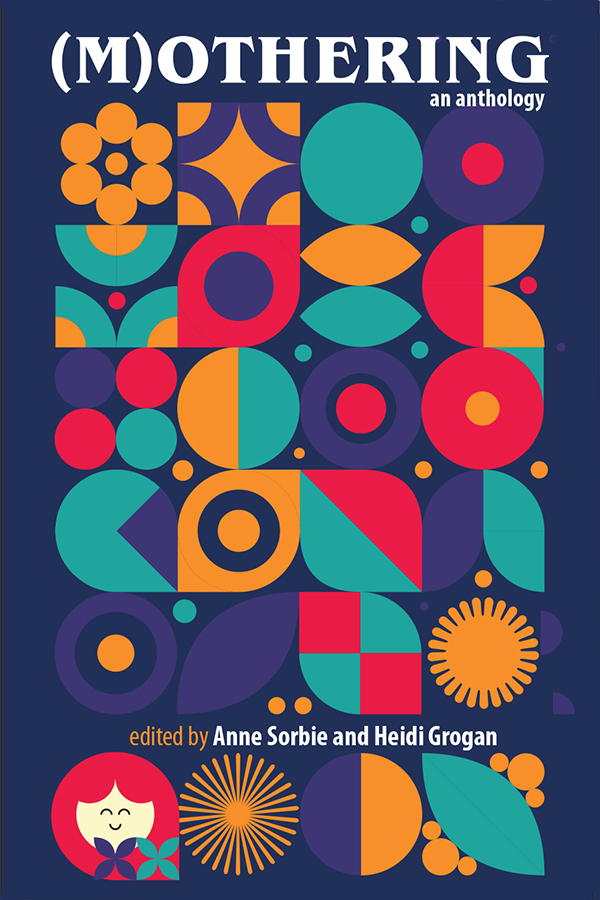

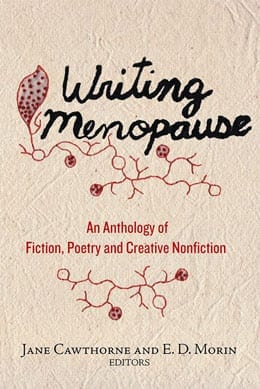
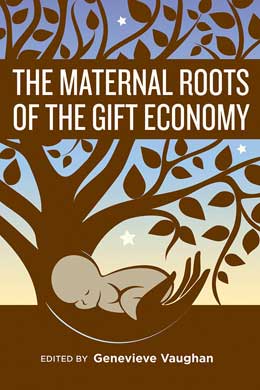
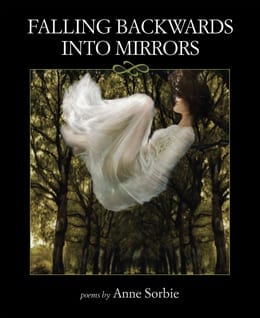

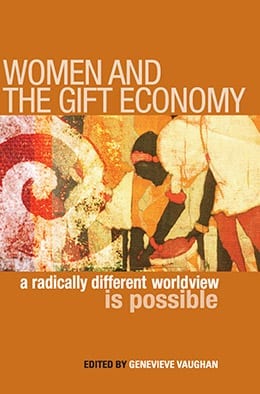
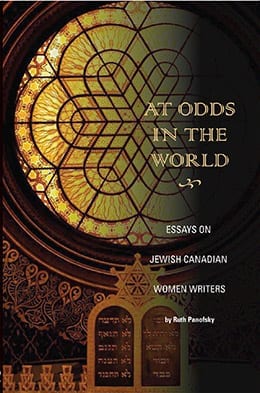
Inanna Admin –
‘Translating (M)otherhoods: A Review of Jaspreet Singh’s My Mother, My Translator, and (M)othering, edited by Anne Sorbie and Heidi Grogan‘
reviewed by Luciana Erregue-Sacchi
The Miramichi Reader – June 13, 2022
https://miramichireader.ca/2022/06/translating-motherhoods/
Excerpt (full review at the link above):
This anthology’s astonishing variety jolted me out of my very comfortably numb, empty-nester life. From the quotidian magic of making bread, as in Joan Crate’s “Song of the Seven Eves” (22), to Penney Kome’s intergenerational portrayal of “Four Generations of Stepmothers” (143), the superbly edited collection, “arranged as if part of an open conversation” gives voice to experiences of motherhood both highly particular and universal, thanks to the inclusion of voices of diverse ethnic, religious, and cultural backgrounds.
Inanna Admin –
(M)othering edited by Anne Sorbie and Heidi Grogan
reviewed by Kimberly Lee
MER: Motherhood, Literature and Art; Mom Egg Review – September 27, 2022 (Excerpts)
https://merliterary.com/2022/09/27/mothering-annie-sorbie-and-heidi-grogan-editors/
(M)othering—an anthology of writing and art edited by Annie Sorbie and Heidi Grogan (Inanna 2022) has a saturated indigo cover filled with vibrant shapes and patterns in contrasting colors that delight the eye. As the images indicate, this compilation of poetry, fiction, and creative nonfiction, punctuated by a selection of visual work, shape-shifts among numerous perspectives and incarnations in its thoughtful exploration of motherhood.
The second thing one’s eye is drawn to, quite possibly after a double take, is the title. As the parenthetical “M” suggests, this compilation goes beyond any strictly confined notions of “mother” to include experiences of maternal energy, from both the giving and receiving end, whether from a distance or swirled undefinably in its embrace. The editors speak of the diverse contributors in the book’s preface, saying, “They stand in the belly of her/their/his/story,” an acknowledgement of the impact and significance of the mother archetype as it exists in us all, regardless of background or experience. The result is an assemblage of voices that encompasses more than what we often encounter in literature centered around motherhood…
…In the rich compendium that is (M)othering, no stone is left unturned, no experience left hidden. As the editors conclude, the contributors’ “…truths, words, and images attest to how mothering shatters and shapes us oh-so-dreadfully and oh-so-wondrously.” The experience is more than a role, it’s an inner journey that molds us, hopefully leading us—through trials, tribulation, and triumphs—to wholeness. “[W]ould you do it again?” Joan Crate asks in “Balloon.” “I’m just wondering, because I would.”